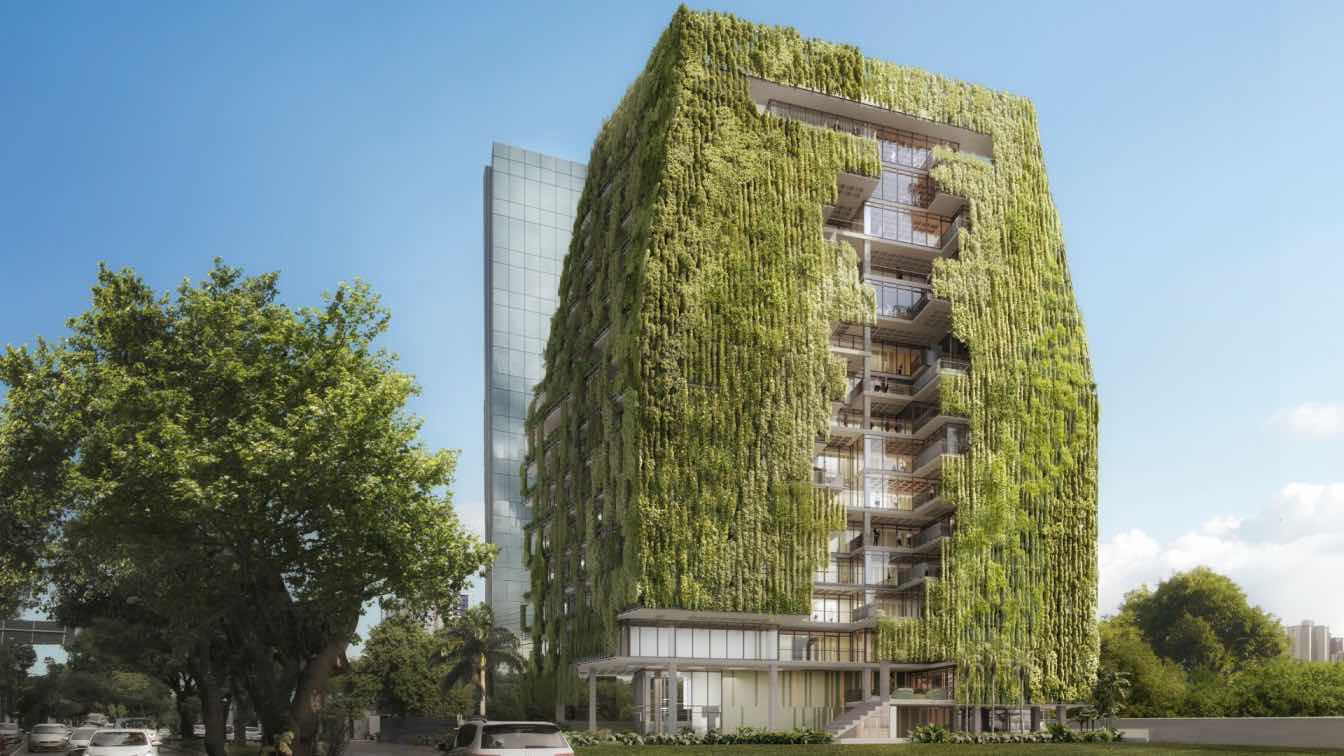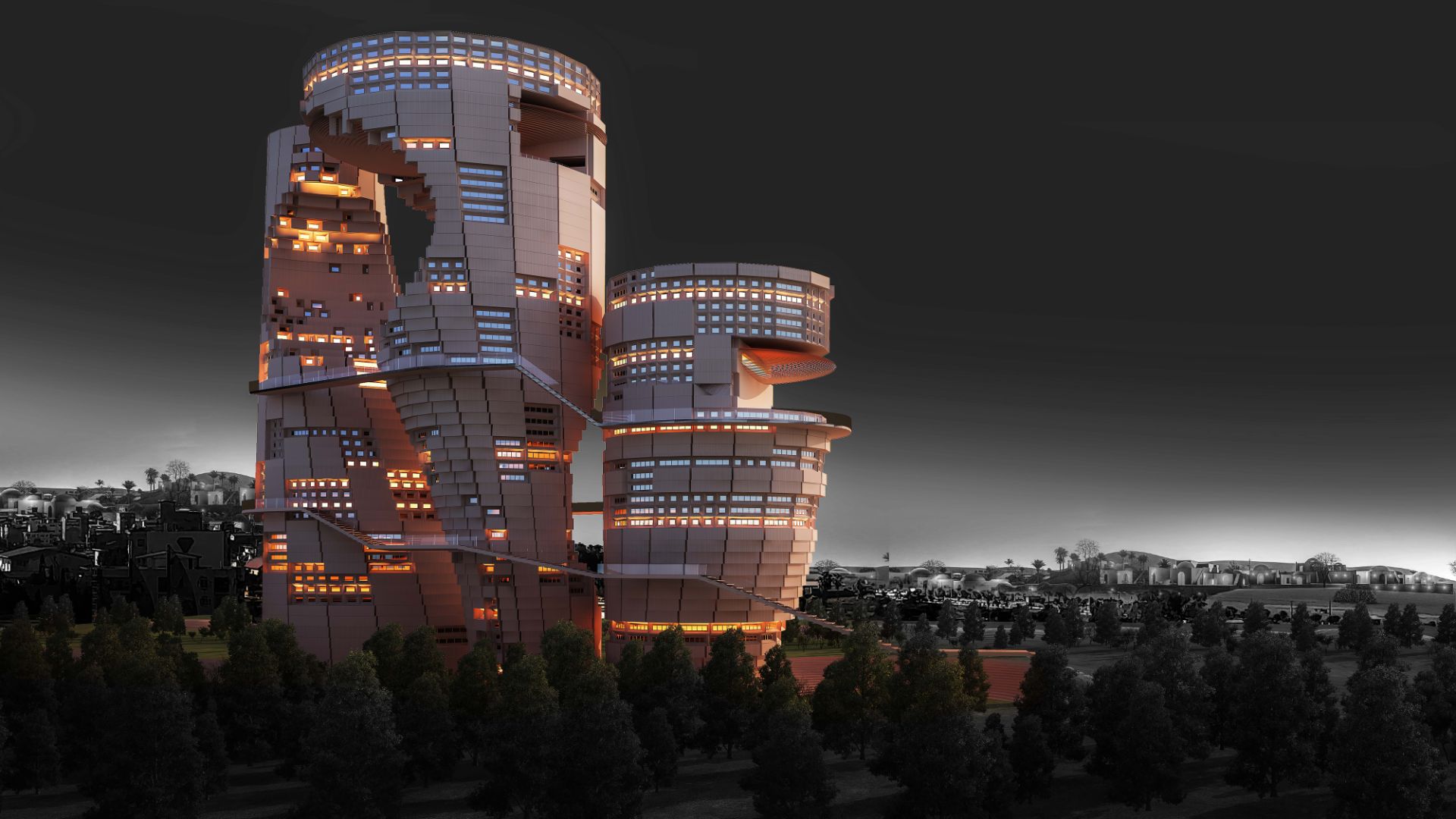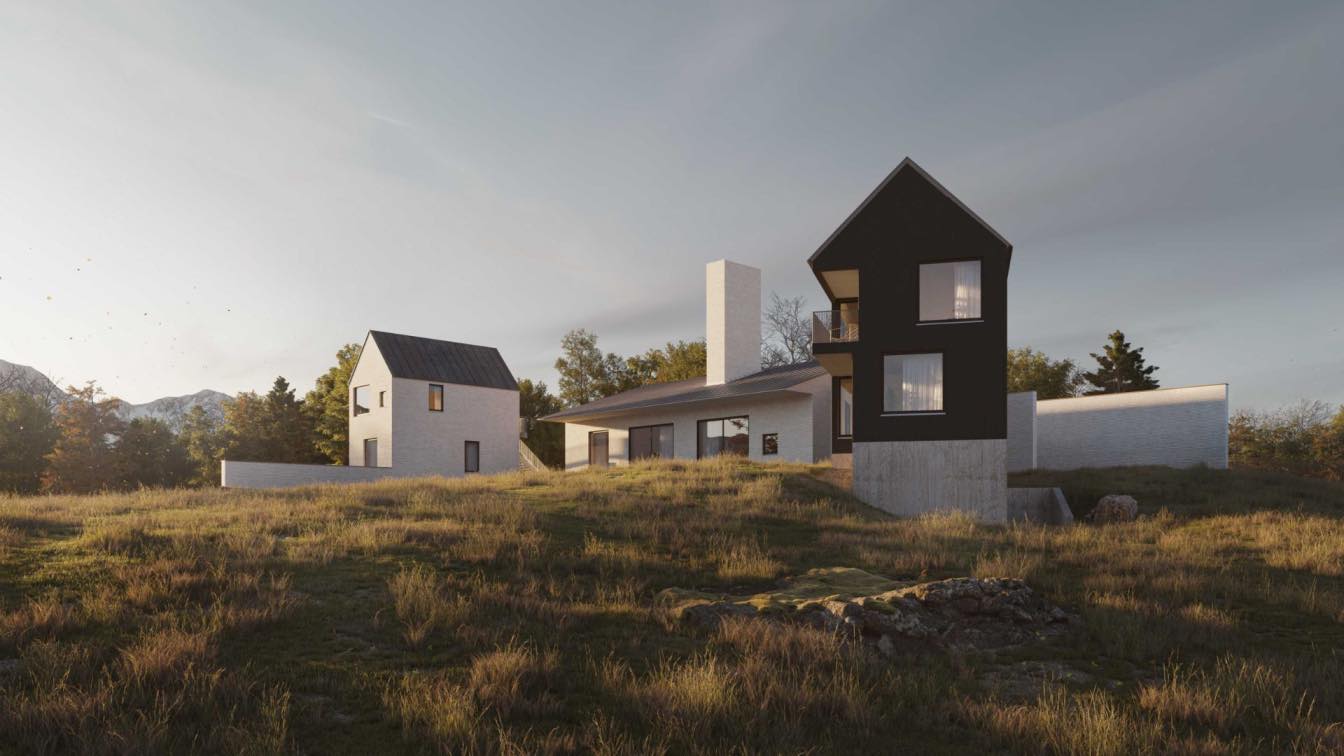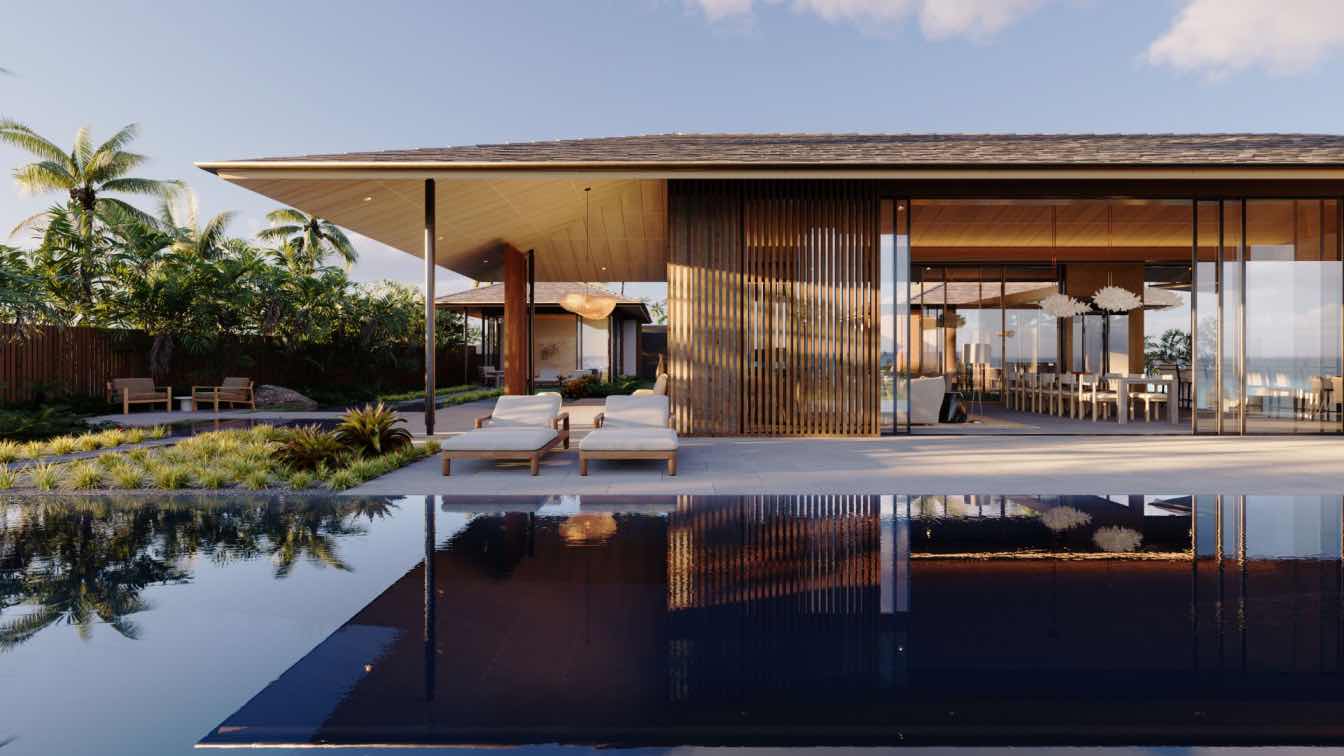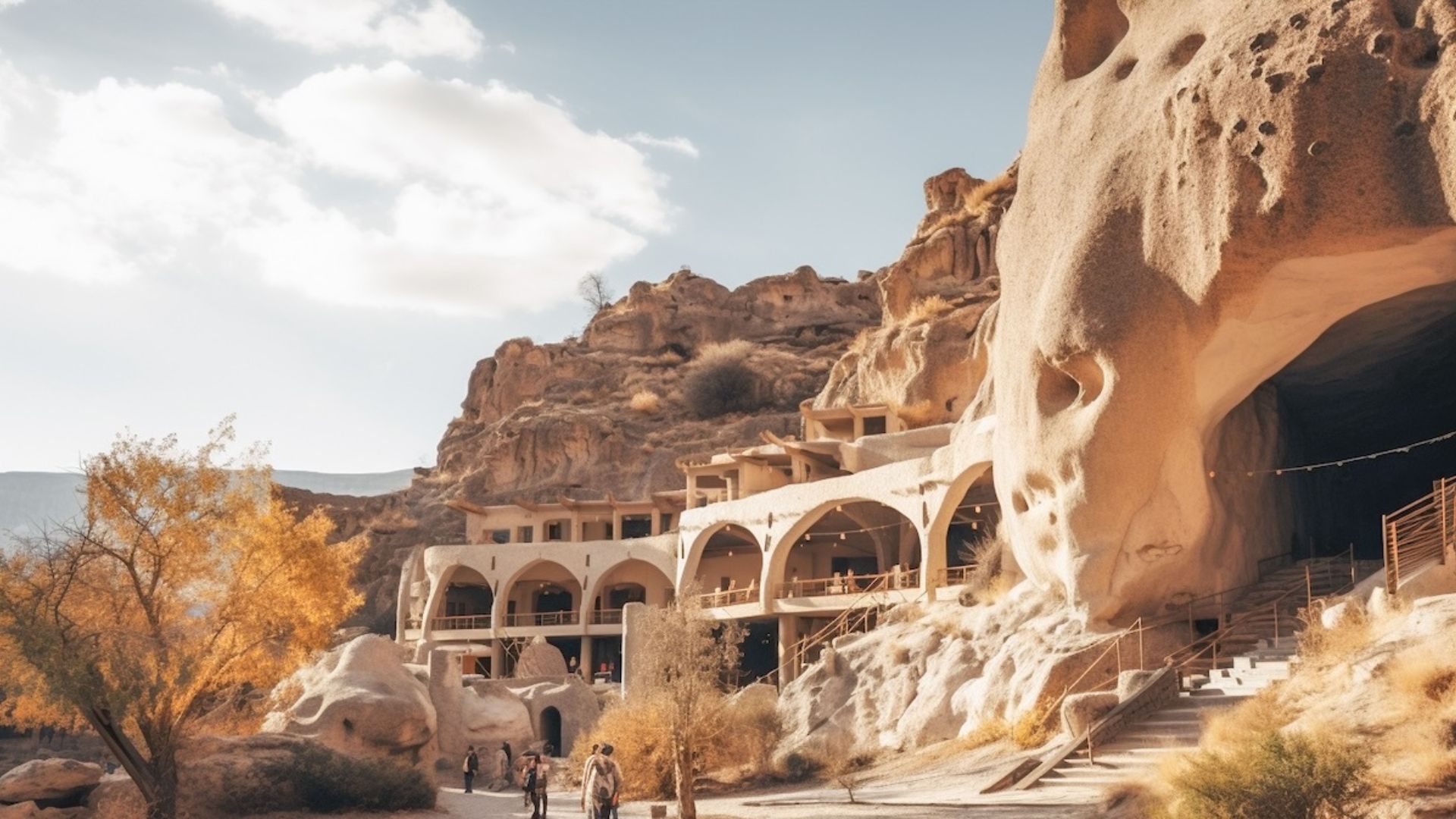Located at one of the highest points in the city of Manaus, Amazon, Brazil, the Botânica Office commercial building, designed by Troost + Pessoa Architects, aims to create a harmonious connection between users and the urban and natural environments. The building's facade, adorned with climbing plants, serves multiple functions: in addition to filtering the afternoon sunlight, it acts as an air purifier and helps regulate the internal temperature, reducing the need for air conditioning. To minimize the glare common at Amazonian latitudes, simple, colorless glass was chosen, which also reduces the need for artificial lighting.
With the introduction of six different types of climbing plants, the project brings originality and innovation, creating a landscape that evolves with the seasons. The climbing plants on the green facade are positioned in front of a simple glass skin, creating a pleasant atmosphere in the workspaces, inspired by the light that permeates the canopy of the Amazon rainforest. Users will be able to enjoy the city skyline blended with the filtered light from the climbing plants.
The connection to the urban space is highlighted by a central cutout that serves as an empty space, designed as an extension of the public area, promoting social and corporate gatherings, and stimulating social interaction on the building's terraces. The ground floor also integrates with the public space, connecting the sidewalk to the shopping center located behind the Botânica, establishing a horizontal axis that complements the verticality of the terraces. At the top, a rooftop bar and restaurant provide a panoramic view of the city, culminating this experience of connection with the environment.

Sustainability is woven throughout the project. The architects, aware of the environmental impact of construction, opted for a building with only 15 floors, resulting in 10% less total built area and 20% less facade area compared to a 25-floor building, which is the maximum allowed in the region, while maintaining a net sales area of 11,000 m².
The Botânica Office also adopts a precast slab system, resulting in savings of up to 20% compared to conventional methods, as well as implementing a dry construction method for separating commercial spaces. The building also captures rainwater and utilizes solar panels, reinforcing its commitment to sustainability.
The project, currently under development and scheduled for completion in 2026, has already won several prestigious Brazilian and international architecture awards. Among these are the Contemporary Architecture Award Somos Cidade in the 'Under Construction Projects' category, the Saint-Gobain AsBEA Architecture Award with the 'Sustainability Highlight Award,' the Americas Property Award 2024-2025 in the 'Commercial High Rise Architecture for Brazil' category, and the Build Architecture Award 2024 - BUILD Excellence Award for Nature Sensitive Architecture 2024.
















































About TROOST + PESSOA Architects
Laurent Troost and Vitor Pessoa established TROOST + PESSOA Architects in 2022 after collaborating on large-scale projects. The firm is dedicated to authorial architecture projects across various typologies and large areas, starting from 1,000 square meters, including residential and commercial spaces, with a special focus on equatorial architecture, encompassing the Amazon and other regions of Brazil.
Laurent Troost is a Belgian architect trained at the Victor Horta Institute of Architecture in Brussels. Early in his career, he worked in the Netherlands at OMA, the firm of architect Rem Koolhaas, and has also practiced in Spain. From 2013 to 2020, he served as the director of the Municipal Institute of Urban Planning of the City of Manaus (IMPLURB) and is the founder of Laurent Troost Architectures.
Vitor Pessoa is a Brazilian architect trained at the Paulista University in Manaus. He founded VIPE Arquitetura in 2009, early in his career, and has over 15 years of experience in authorial projects. He participated in the Ibero-American Biennial Exhibition in São Paulo in 2016 and the Seoul Biennale in 2021. Additionally, he has been a member of the Brazilian Association of Architecture Offices (ASBEA-AM) since 2012.

